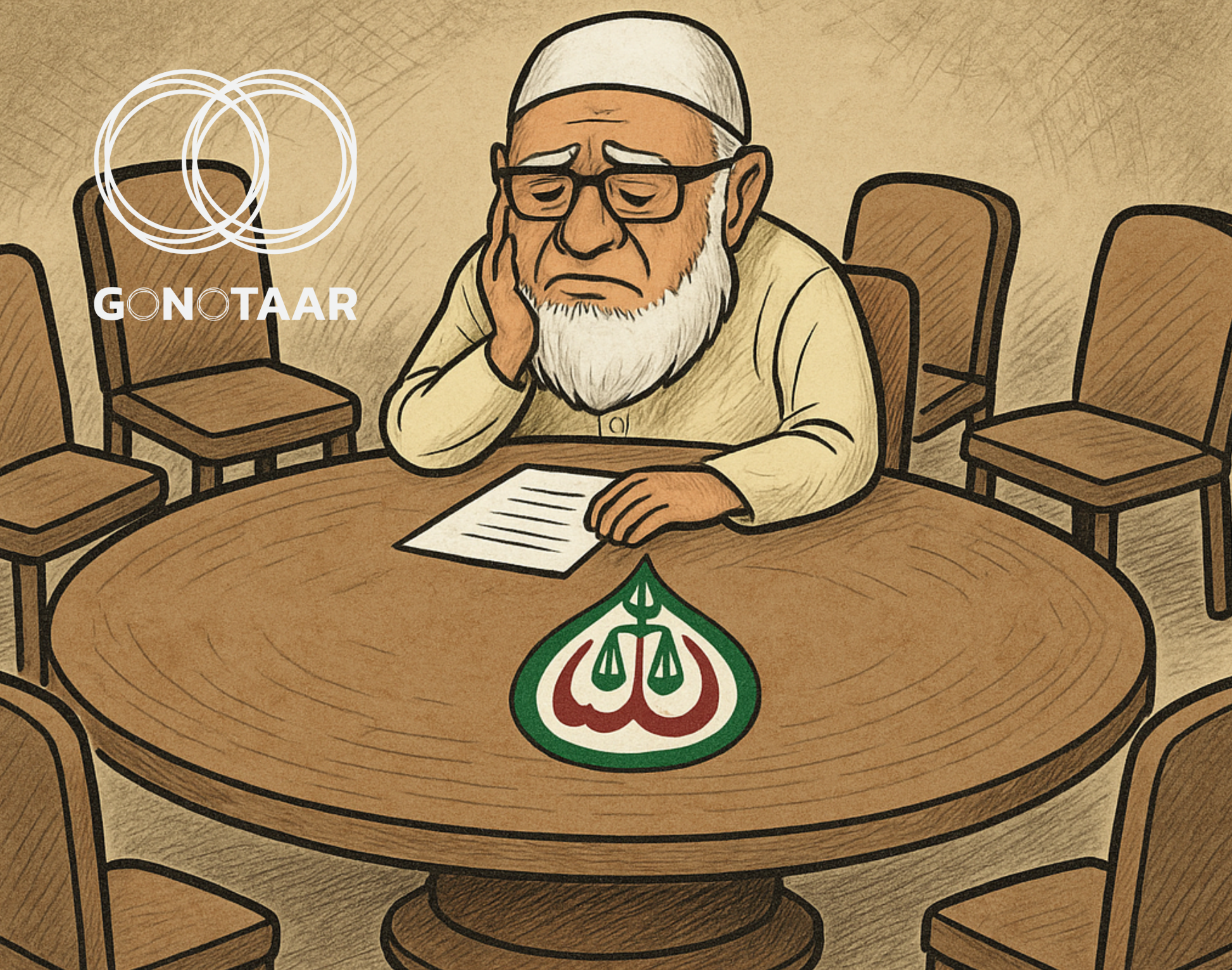Despite its push to forge a united Islamist front ahead of the upcoming national election, Bangladesh Jamaat-e-Islami is struggling to bring most Islamic parties under a single electoral umbrella. Leaders of several Islamic parties have made it clear—sometimes indirectly—that ideological differences remain too significant for a broad coalition under Jamaat’s leadership.
Over the past weeks, discussions of an Islamist alliance led by Jamaat have surfaced, but insiders say the talks remain confined to preliminary discussions with little prospect of success. As election season gathers momentum following the interim government’s announcement of polls before Ramadan, the chances of a comprehensive Islamist bloc appear increasingly slim.
Reluctance Among Islamic Parties
While Jamaat leaders remain optimistic, stressing their efforts to unify Islamic forces under a “one-box” electoral policy, most parties are distancing themselves. Some are considering alternative alliances without Jamaat, citing deep-rooted doctrinal and political differences.
Jatiyat Ulama-e-Islam Bangladesh’s Secretary General Maulana Manzurul Islam Afendi dismissed the prospect of partnering with Jamaat, stressing there is “no possibility” from his party’s perspective. Similarly, Khilafat Majlis Amir Maulana Mamunul Haque said his party had engaged in discussions with Islami Andolan Bangladesh but not with Jamaat, highlighting “fundamental differences” with Maulana Maududi’s ideology.
Other leaders, including Islami Oikya Jote’s Secretary General Mufti Sakhawat Hossain Raji, pointed to grassroots skepticism toward Jamaat, while Khilafat Andolon’s Naib-e-Amir Maulana Mujibur Rahman Hamidi said his group is focusing instead on cooperation with Qawmi madrasa-based organizations.
Limited Openings for Jamaat
One exception appears to be Islami Andolan Bangladesh, led by the Char Monai Pir. Once at odds with Jamaat, the group now appears more receptive, with leaders signaling willingness to consider unity “for the sake of the greater cause.” Even so, they admit no official talks have taken place yet.
Several parties, such as Khilafat Majlis and Nezame Islam, remain undecided, balancing between calls for broader Islamic solidarity and their reluctance to align with Jamaat. Some speculate that these parties could ultimately tilt toward BNP, given past alliances.
Jamaat’s Position
Jamaat leaders continue to project confidence. Shafiqul Islam Masud, central working committee member and Dhaka South secretary, claimed the party enjoys “full support from all sections of the population” and insisted that ongoing outreach would bear fruit as the election nears. “Islamic parties will have to come to an understanding under one policy,” he argued.
The Bigger Picture
Bangladesh currently has 10 registered Islamic political parties, with several more small, unregistered groups active. Previous attempts at Islamist unity have repeatedly failed, and the current dynamics suggest history may repeat itself. The ideological and strategic fault lines—particularly over Jamaat’s legacy and doctrinal differences—pose a formidable challenge to any grand coalition.
As the thirteenth national election approaches, Jamaat may still find selective partners, but a sweeping Islamist bloc under its command looks increasingly unlikely.




